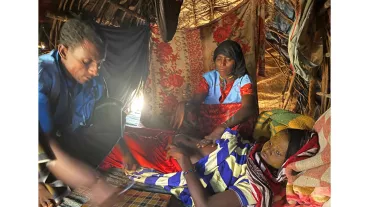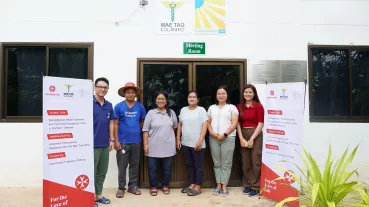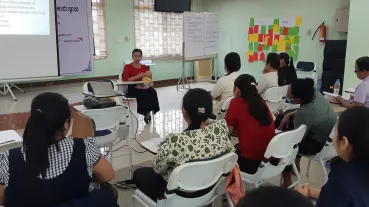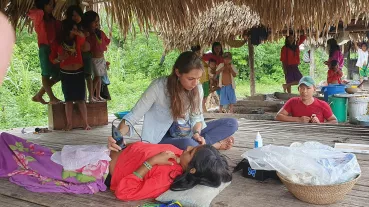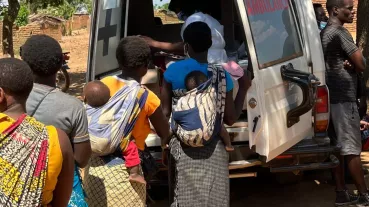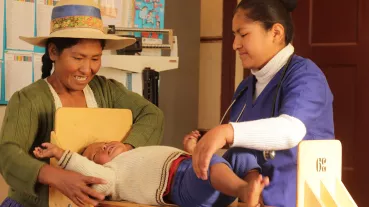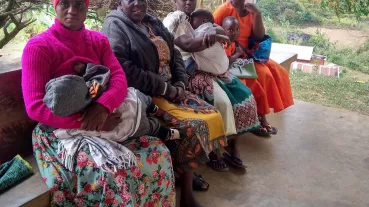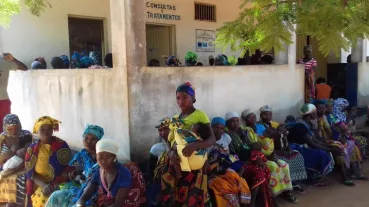Little Steps – Big Help. Tackling Malaria and Malnutrition among Infants and Mothers
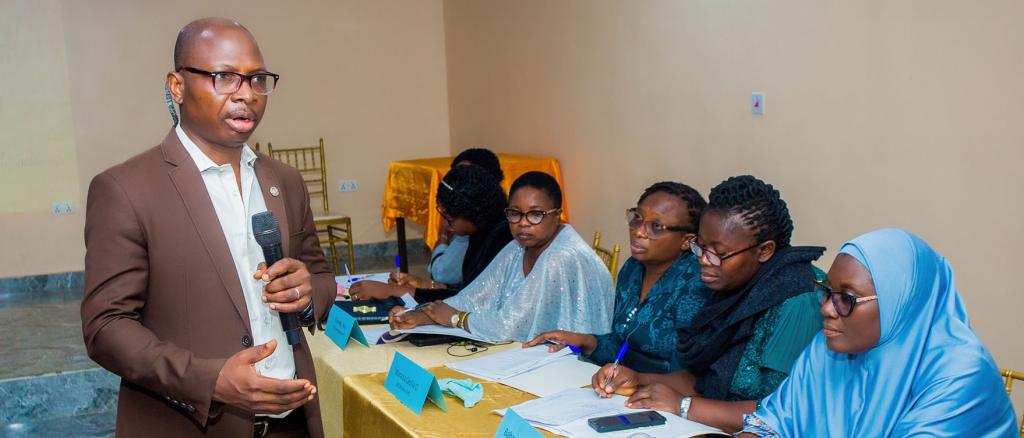
Situation:
Nigeria accounts for a quarter of all malaria cases worldwide. In addition, around 2 million children and seven percent of women of childbearing age suffer from acute malnutrition. Treatment is inadequate, which leads to a high mortality rate. There is also a lack of education and knowledge about the consequences, prevention and the interaction of malaria and malnutrition.
Objectives:
Reducing cases of malaria and malnutrition in children under five and pregnant women
- Health facilities are equipped for the prevention, diagnosis and treatment of malaria and malnutrition and their staff are trained
- The target group is informed about the risks of malaria and malnutrition and the improved access to medical services
- The target group makes use of the improved medical services
- Training of doctors, nurses and community health extension workers (CHEWs) on diagnosis and treatment of malaria and malnutrition
- Providing health facilities with an initial supply of materials and medicines to treat malaria and malnutrition
- Conduct community outreaches by CHEWs to diagnose and raise awareness about malaria and malnutrition
- Implementation of a communication campaign to raise awareness about the risks of malaria and malnutrition
- Implementation of stakeholder meetings to continue the measures after the end of the project
The close cooperation with the health ministries and local partners throughout the project cycle as well as the implementation of stakeholder workshops ensure that the measures are continued also in other communities after the end of the project. The media campaign and community outreaches will increase the knowledge and lead to a change in behaviour among the target group. The training of health workers strengthens their capacities, while the initial provision of medical materials ensures that the target group receives high-quality treatment, thereby increasing demand in the long term.
Raising awareness about the connection and appropriate measures to simultaneously reduce malaria and malnutrition should lead to a lower mortality rate in the target regions in the long term. The close cooperation with local authorities throughout the project cycle and the simultaneous campaign for behaviour change among the target group should sustainably strengthen the supply of and demand for appropriate medical services.
Here you can find further information.
